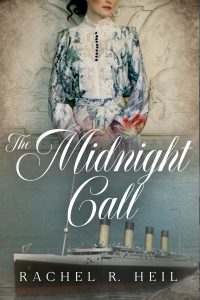Do you have a book club filled with members who enjoy lively conversation but struggle with what questions to ask about the book? Are you a reader who likes to dive deeper into a book after you finish it? Have you finally read the book your friend keeps talking about and now want to discuss all the dirty details over a cup of coffee? If you are, then you’ve come to the right place! On this page you’ll find reader questions for all of my books, stretching from plot points to characters to the historical context to the question readers ask a hundred times while reading historical fiction, what would you do in the character’s situation? You can find that all here!
As a warning, some of these questions contain spoilers, so maybe come back to these after you’ve finished the book.

Behind the Darkened Glass Series
The SS remains one of the most monstruous organizations in history. However, this did not stop many young men from signing up. What do you think drew their interest to this organization? What red flags should men like Hans have noticed early on?
Which character do you think had the biggest character development? Which character’s development surprised you the most? Do you think there was a character that never changed over the course of the series?
In book one, Hans and Helmut have an excellent relationship. However, when Hans disobeys a direct order the relationship changes. If you were Hans how would have handled the relationship with Helmut? What could have Hans done better, if anything?
The SS was far from an ideal working environment. Many of the high ranking officers didn’t trust each other and were often plotting against one another to get ahead. If you were Hans, who would have aligned yourself with? Who would you have conspired against?
Charlotte transforms from a young, slightly naïve woman to a protective mother who is willing to make major sacrifices to protect her children and husband. Would you have made the decisions Charlotte made? What decision was her riskiest and do you think it paid off?
In book four, Hans decides to become part of the German resistance after his experiences on the Eastern Front. Why do you think that was the final straw for Hans, effectively severing his loyalty with the SS? After all, Hans had experienced other acts of violence and brutality before World War Two. What do you think changed?
The July 20th Plot to kill Hitler is one of the famous attempts made by the German resistance to end the Nazi regime. However, the conspirators made several key mistakes, including not taking control of the communications. What would you have done to protect yourself as the plot fell apart? Would you have fled, return to your normal routine and pretend nothing had happened, or something else?
In book five, Hans learns from Timothy that he will be tried as a war criminal. Do you think he deserved to be tried or do you think his actions in the German resistance resolved him from his crimes? If you were in charge of determining who should be tried for Nazi atrocities, what actions of Hans would you use to defend your decision?
What were you thoughts about the ending? What do you think motivated Hans to take his own life? Was it the right decision or do you think he should have faced his day in court?
In the epilogue it is revealed that Hans and Charlotte’s children all took vastly different paths in life. Their decisions reflect what many children of Nazi war criminals took. Some supported the actions of their fathers, others condemned what they did but insisted they were good people inside who were led astray while others wanted nothing to do with their parents or their beliefs. How do you think you would have handled the situation?

Leningrad Series
By 1941 World War Two had been raging in Europe for two years. Yet, despite this and the well-known fact that Hitler hated Communism, the people of the Soviet Union were unconcerned about going to war with Germany. Why do you think that is? If you were living in 1941 Leningrad would you have done anything to prepare for a potential upcoming conflict?
Like many Soviet citizens when war was declared Tatiana and her family volunteered for various works and units to protect the country. What would you have signed up for? Why?
Many parents held back from sending their children out of the cities, unlike families in England. Half of this is due to the fact that the Party refused them permission but the other reason is because many didn’t believe the Germans would enter Leningrad. Would you have sent your children out of the city? Why or why not? What would you have done to prepare yourself for a possible attack on your city?
The first winter of the siege was the worst for many Leningraders. There was a lack of food, medical supplies, and other necessities and hardly anyway out of Leningrad. As a result, many civilians went to extreme lengths to survive. Is there one action Tatiana and her fellow citizens partake in that you wouldn’t have done? Or would you have done anything to keep you and your family alive?
Many German soldiers who partook in the invasion of the Soviet Union felt they were doing the right thing and that they were liberating Soviet citizens from their government. What do you think was the turning point for many of these men to realize this was not the case?
As the series progresses the hold the Soviets have on Tatiana tightens. What would you have done if you were in Tatiana’s situation? Would you have toed the Party line or would you have defected to the other side? Was there even a way out?
In book three Heinrich ends his relationship with Tatiana, believing they can not share a future together. Do you think he made the right decision? Did they have a third, unsaid option?
Based off what you have learned about the siege and the fact that the siege was viewed negatively by Soviet authorities in the decades after, what do you think were the primary reasons for why the Soviet government refused to get the victims their proper recognition?
What fact about the siege surprised you the most? What is the biggest lesson you can take away from the survivors of this event?

The Midnight Call
At the beginning of the story we learn that Helen is seeking employment at the White Star Line because her mother has passed away and previously worked there. This was very common for the time period for daughters to become ship stewardesses like their mothers. Beside knowing what they were getting into, what other reasons would a young woman like Helen want to become a ship stewardess? What would have drawn you to the position or why wouldn’t you have applied for such a position?
Once aboard the Titanic for her Sea Trials, Helen becomes acquainted with the ship’s officers, who provide her with a little bit of their sea background. Which officer did you find the most interesting? Which one would you have gotten along with the most?
Much like how many young women went to sea for adventure and independence, many young men became wireless operators to be at the cutting edge of technology. Jack Phillips and Harold Bride were no different. Do you think there is a modern day equivalent to what Jack and Harold were doing?
As the voyage gets underway, Helen gets to know many members of the crew, who were all real historical figures that are unfortunately not often discussed. Why do you think the crew is not as frequently written about? Is there one minor or supporting crew member you would like to read more about?
The day before the disaster, the wireless machine broke down and, as portrayed in the novel, Jack and Harold spent all night fixing it, despite Marconi regulations prohibiting them from doing so. Removing the hindsight of what was to happen, do you think Jack and Harold might the right decision or, if it had been you, would you have obeyed Marconi regulations?
Jack and Helen face many hurtles in their relationship but ultimately make the decision to be together. Do you foresee any major challenges they had not anticipated? Do you think, in the long run, they would have stayed together or, like Helen’s roommate Violet’s one time shipboard romance, it would have fizzled out?
When the disaster occurs there is much confusion not just with the passengers but with the crew. Why do you think there was so much miscommunication? What could have been done to rectify that issue?
The crew ended up having the highest causalities in the disaster and yet many of them remained at their post until the end. Do you think such dedication to duty can still be seen today? If so, where? Would you have stayed at your post until the end?
There has been much said and written about the lack of ice warnings that made it to the bridge. Charles Lightoller, the second officer, later wrote in his autobiography that the disaster could have been avoided if more of these messages made it to the bridge, a claim the Marconi Company fought back. However, do you think that would have made a difference? What, if anything, do you think was the biggest factor in the disaster?



